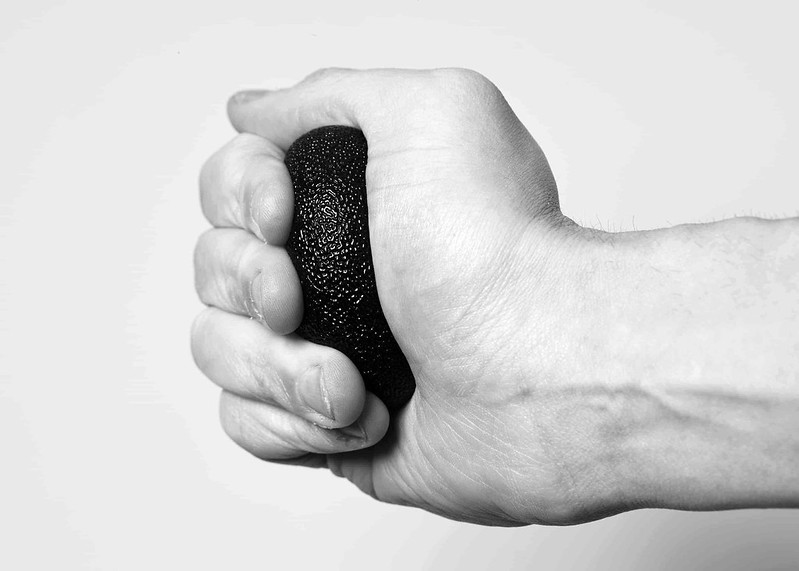Stress is an inevitable part of life. Whether it stems from work, relationships, health, or unexpected events, stress can take a toll on both your mental and physical well-being. Over time, unmanaged stress can harm your relationship with yourself and your body, leading to burnout, poor self-image, and health complications.
The good news is that stress management techniques can help you find balance, improve your self-relationship, and foster a healthier connection with your body. This article explores the science behind stress, its impact on your self-perception, and effective strategies for managing it.
Understanding Stress and Its Impact
Stress is your body’s natural response to challenges or threats. While short-term stress can be motivating, chronic stress has a significant negative impact on your well-being.
How Stress Affects Your Body
- Physical Symptoms: Headaches, muscle tension, fatigue, digestive issues, and a weakened immune system.
- Hormonal Imbalance: Prolonged stress elevates cortisol levels, leading to weight gain, disrupted sleep, and skin issues.
- Impact on Self-Image: Stress-induced changes, like weight fluctuation or acne, can lead to negative self-perception.
How Stress Affects Your Mind
- Mental Strain: Anxiety, irritability, and difficulty concentrating are common.
- Emotional Disconnect: Stress can make you feel disconnected from yourself and others.
- Impact on Confidence: When stress takes over, it can undermine your confidence and self-esteem.
Managing stress effectively is essential for restoring balance and cultivating a positive relationship with your body and mind.
Stress Management Techniques for a Balanced Life
1. Practice Mindfulness
Mindfulness is the practice of staying present in the moment without judgment. It helps reduce stress by shifting your focus away from worries and toward the present.
- How to Start: Spend 5-10 minutes daily focusing on your breath or sensations in your body.
- Benefits: Improved emotional regulation, reduced anxiety, and better self-awareness.
2. Develop a Relaxation Routine
Incorporating relaxation techniques into your daily life can lower cortisol levels and improve your sense of calm.
- Techniques to Try:
- Deep breathing exercises: Inhale for 4 seconds, hold for 4 seconds, exhale for 6 seconds.
- Progressive muscle relaxation: Tense and release muscle groups systematically.
- Guided imagery: Visualize calming scenarios, such as a peaceful beach.
3. Stay Physically Active
Exercise is a powerful stress-relief tool. It releases endorphins, improves mood, and helps you reconnect with your body.
- Options for All Fitness Levels:
- Yoga: Combines movement with mindfulness.
- Walking: Provides gentle, accessible exercise.
- High-Intensity Workouts: Channel energy and relieve tension.
4. Prioritize Sleep
Sleep is vital for managing stress and maintaining overall well-being. Lack of rest exacerbates stress and impairs your ability to cope.
- Tips for Better Sleep:
- Maintain a consistent sleep schedule.
- Create a calming bedtime routine (e.g., reading, meditation).
- Avoid screens and caffeine before bed.
5. Foster Positive Relationships
Connecting with loved ones can provide emotional support and perspective during stressful times.
- Ways to Build Connection:
- Schedule regular check-ins with friends or family.
- Join a community or support group with shared interests.
- Be open about your feelings to reduce emotional isolation.
6. Nourish Your Body
A balanced diet can enhance your body’s ability to handle stress. Focus on whole, nutrient-dense foods that stabilize energy levels.
- Stress-Reducing Foods:
- Omega-3-rich foods (e.g., salmon, walnuts) for brain health.
- Leafy greens for magnesium, which helps calm the nervous system.
- Herbal teas like chamomile to promote relaxation.
7. Set Healthy Boundaries
Learning to say no and protecting your time are critical for reducing stress and maintaining balance.
- How to Implement Boundaries:
- Define your limits (e.g., work hours, personal time).
- Communicate your needs assertively.
- Avoid overcommitting to tasks or obligations.
8. Engage in Creative Outlets
Creative activities provide an excellent escape from stress while fostering self-expression and boosting confidence.
- Ideas to Try:
- Drawing, painting, or crafting.
- Writing or journaling.
- Playing a musical instrument.
Rebuilding a Positive Relationship with Your Body
Chronic stress can make you feel disconnected from your body, fostering a negative self-image. Incorporating self-care practices that prioritize body appreciation is key to restoring a healthy connection.
1. Practice Gratitude for Your Body
Focus on what your body does for you rather than how it looks. For example:
- Your legs carry you through life.
- Your hands allow you to create and connect.
2. Embrace Movement You Enjoy
Choose physical activities that make you feel good, rather than those focused solely on changing your appearance.
3. Limit Negative Influences
Reduce exposure to media that promotes unattainable beauty standards. Curate your social media feed to include body-positive influencers and content.
4. Celebrate Small Wins
Acknowledge and celebrate progress, whether it’s better sleep, improved mood, or simply taking time for yourself.
Developing a Holistic Stress Management Plan
A well-rounded approach to stress management integrates mental, physical, and emotional well-being. Here’s how to create a sustainable plan:
Step 1: Assess Your Stressors
Identify the primary sources of stress in your life. Are they related to work, relationships, or health? Understanding your triggers helps you address them more effectively.
Step 2: Create a Daily Stress-Relief Routine
Incorporate a mix of the techniques above into your daily life. For example:
- Morning: Practice mindfulness or journaling.
- Afternoon: Take a 15-minute walk or stretch break.
- Evening: Unwind with a book, meditation, or a warm bath.
Step 3: Track Your Progress
Keep a stress journal to monitor your triggers, coping strategies, and improvements over time. This practice increases self-awareness and highlights your progress.
The Long-Term Benefits of Stress Management
Consistent stress management yields lasting benefits for your mental and physical health:
- Improved Self-Perception: Reduced stress fosters a healthier relationship with your body and mind.
- Better Decision-Making: A calm, balanced state enables clearer thinking and more thoughtful choices.
- Enhanced Quality of Life: Managing stress helps you live with greater joy, purpose, and resilience.
Conclusion: Building Balance and Self-Love
Stress is a natural part of life, but it doesn’t have to control you. By adopting effective stress management techniques, you can reclaim balance, improve your relationship with your body, and nurture self-love.
Remember, it’s not about eliminating stress entirely—it’s about equipping yourself with the tools to handle it gracefully. Start small, stay consistent, and prioritize your well-being. Over time, you’ll discover that a balanced life isn’t just attainable—it’s transformative.



